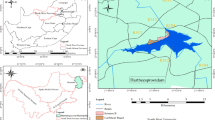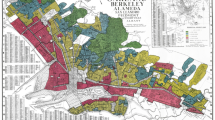Abstract
The process of marginalisation within the British housing system has contributed to the rising incidence of housing debt amongst both owner-occupiers and tenants. There are currently over two million households in arrears of payments of rents or mortgages. Increasingly, lenders and landlords are using the judicial system as a central part of arrears management strategies. The paper reports some of the findings from a major study, funded by the Joseph Rowntree Foundation, looking at housing debt, legal proceedings and the threat of eviction. The paper outlines what happens to tenants who are taken to court as a result of rent arrears. Drawing on both qualitative and quantitative survey data, it examine:
-
. the rising incidence and the main reported causes of rent arrears;
-
. the use of the judicial system to recover arrears and/or repossess dwellings;
-
. the outcome of hearings, tenants' participation in the court process; and
-
. tenants' experience of the court process.
The study shows that while the causes of debt are similar for owner-occupiers and tenants, the way in which cases are dealt with varies, depending on the tenure of the household. In the vast majority of arrears cases, action to resolve the debt is taken without reference to the judicial system. Informal agreements may be made to repay the arrears or, in the worst-case scenario, properties are voluntarily abandoned. The cases referred to the courts represent only the tip of the iceberg. Yet how the courts deal with such cases is of interest both directly, in terms of the effectiveness of legal action in recovering arrears, and more widely, in terms of the influence judicial decisions have on landlords' and tenants' rent arrears management practices. The picture that emerges from interviews with tenants threatened with eviction is of people, initially fearful, who often end up feeling humiliated, confused and in some cases very unhappy with the experience.
Similar content being viewed by others
References
Audit Commission (1984)Bringing Arrears under Control.
Audit Commission (1989)Survey of Local Authority Rent Arrears.
Berthould, R., and E. Kempson (1992)Credit and Debt, The PSI Report, Policy Studies Institute.
CIoH (1995)Housing Standards Management Manual Coventry.: Chartered Institute of Housing.
Department of Environment (1989)Taking Tenants to Court, HMSO.
Department of Environment (1993)Managing Social Housing. York Centre for Housing Policy, HMSO.
Department of Environmeng (1994)Rent Arrears in Local Authorities and Housing Associations, HMSO.
Department of Environment (1995)Mortgage Arrears and Possession Proceedings: Perspectives from Borrowers Lenders and the Courts, HMSO
Department of Environment (1996)Housing in England 1994/95, HMSO.
Doling, J., and S. Wainright (1989) Public and Private Debt,Housing Review (38), No. 3.
Duncan, S. and K. Kirby (1983)Preventing Rent Arrears, DoE 1983.
Ford, J., (1988)The Indebted Society: Credit and Default in the 1980s, Routledge.
Ford, J., (1993)Mortgage Possession. Housing Studies (18), No. 4, pp. 227–240.
Ford, J., (1994)Problematic Home Ownership: the management, experience and consequences of arrears, and possessions in a depressed housing market, Joseph Rowntree Foundation.
Foster, S. (1991).Rent Arrears: A good practice guide for local authorities, Shelter.
Gentle, C., D. Dorling, and J. Cornford (1994) “Negative Equity and British Housing in the 1990's: Cause and Effect”.Urban Studies (31), No. 2 pp. 181–199.
Lord Chancellor's Department (1996)Mortgage and Non Mortgage Statistics 1995.
Sheltis (1994)Parliamentary Housing News, p. 3, London.
Woolf, L., (1995)Access to Justice: Interim report to the Lord Chancellor on the civil justice system in England and Wales. Lord Chancellor's Department.
Woolf, L., (1996)Access to Justice-Housing, Consultation Paper, LCD.
Wilcox, S. (1995)Housing Finance Review 1995/96, Joseph Rowntree Foundation.
Author information
Authors and Affiliations
Additional information
Judy Nixon is Senior Lecturer at the School of Urban and Regional Studies Sheffield Hallam University.
Caroline Hunter is Senior Lecturer at the Department of Law, University of Nottingham
Rights and permissions
About this article
Cite this article
Nixon, J., Hunter, C. “It was humiliating actually. I wouldn't go again”: Rent arrears and prossession proceedings in the county court. Neth J of Housing and the Built Environment 11, 421–438 (1996). https://doi.org/10.1007/BF02497495
Received:
Accepted:
Issue Date:
DOI: https://doi.org/10.1007/BF02497495




